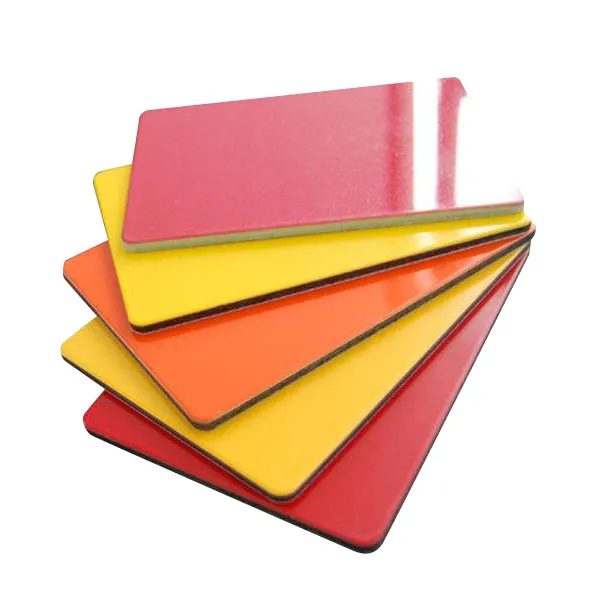Exploring the Versatility and Benefits of Aluminum Composite Panels
2024-08-24
Introduction:
Aluminum Composite Panels (ACPs) have become a popular choice in the construction and design industry due to their versatility, durability, and aesthetic appeal. Used in a wide range of applications, from building facades to interior decoration, ACPs offer a combination of lightweight properties and high strength, making them an ideal material for modern architectural solutions.

What are Aluminum Composite Panels?
Aluminum Composite Panels consist of two thin layers of aluminum enclosing a non-aluminum core, usually made from polyethylene or a mineral-filled material. This structure gives ACPs their unique properties: they are lightweight yet sturdy, offering excellent durability and flexibility. The panels are available in various finishes, including metallic, wood, stone, and custom colors, allowing architects and designers to achieve a wide range of visual effects.
Key Benefits of Aluminum Composite Panels:
1. Durability and Weather Resistance:
ACPs are highly resistant to weather conditions, including UV rays, rain, and temperature fluctuations. This makes them suitable for both exterior and interior applications. Their durability ensures a long lifespan, reducing the need for frequent replacements.
2. Lightweight and Easy Installation:
Despite their strength, ACPs are lightweight, which makes them easier to handle and install compared to other materials like solid aluminum or steel. This can lead to cost savings in terms of transportation and labor during installation.
3. Aesthetic Flexibility:
The wide range of colors, finishes, and textures available for ACPs allows for endless design possibilities. Whether you’re looking for a sleek, modern appearance or a more traditional look, ACPs can be customized to meet your specific design requirements.
4. Cost-Effective:
Aluminum Composite Panels offer an excellent balance between cost and performance. They provide the look and feel of solid aluminum at a fraction of the cost, making them an attractive option for budget-conscious projects without sacrificing quality.
5. Fire Resistance:
Many ACPs are manufactured with fire-resistant cores, making them safer for use in building facades and other applications where fire safety is a concern. This is particularly important in high-rise buildings and public spaces.
Applications of Aluminum Composite Panels:
- Building Facades:
ACPs are commonly used for exterior cladding in commercial, residential, and industrial buildings. Their ability to withstand harsh weather conditions while maintaining their appearance makes them a preferred choice for facades.
- Signage and Display:
The smooth, flat surface of ACPs is ideal for creating high-quality, durable signs and displays. They are widely used in the advertising and retail industries for everything from storefront signage to large outdoor billboards.
- Interior Decoration:
ACPs are also popular in interior design, where they are used for wall panels, partitions, and ceilings. Their clean lines and modern finishes can enhance the aesthetic appeal of any space.
Conclusion:
Aluminum Composite Panels offer a versatile, durable, and aesthetically pleasing solution for a variety of architectural and design applications. Their combination of lightweight properties, durability, and cost-effectiveness makes them an excellent choice for both interior and exterior projects. As the demand for sustainable and innovative building materials continues to grow, ACPs are likely to remain a key player in the construction industry.


